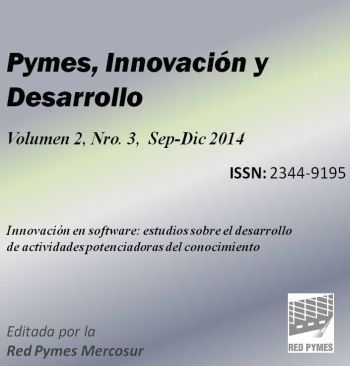Make or Buy to innovate in the Software sector
Abstract
In the context of profound economic growth that has been taking place in Latin American countries, the extent of innovation in high technology sectors such as Knowledge Intensive Business Services (KIBS), is considered fundamental to build a virtuous developing path. In this sense, successful innovation in business depends on the development and integration of new knowledge in the innovation process. This paper analyzes the existence of complementarity between internal and external sources of knowledge for innovation activities in firms from the software industry of Argentina, taking account of the limited treatment of these matters in studies of innovation of these sectors in emerging economies. The theoretical framework is grounded on the Make and Buy literature, innovation studies and KIBS literature; and the econometric tools involves a group of estimates of the role of innovation (Ordered Probit, Tobit, OLS and Probit). The results allow us to state the existence of complementary relations between internal and external knowledge sources, regardless the regression model considered, which underline the robustness of the quantitative exercise.
Downloads
Downloads
Published
Issue
Section
License
Copyright (c) 2015 Pymes, Innovación y Desarrollo

This work is licensed under a Creative Commons Attribution 4.0 International License.
Authors who publish with this journal agree to the following terms:Authors retain copyright and grant the journal right of first publication with the work simultaneously licensed under a Creative Commons Attribution License that allows others to share the work with an acknowledgement of the work's authorship and initial publication in this journal.
Authors are able to enter into separate, additional contractual arrangements for the non-exclusive distribution of the journal's published version of the work (e.g., post it to an institutional repository or publish it in a book), with an acknowledgement of its initial publication in this journal.
Authors are permitted and encouraged to post their work online (e.g., in institutional repositories or on their website) prior to and during the submission process, as it can lead to productive exchanges, as well as earlier and greater citation of published work (See The Effect of Open Access).














